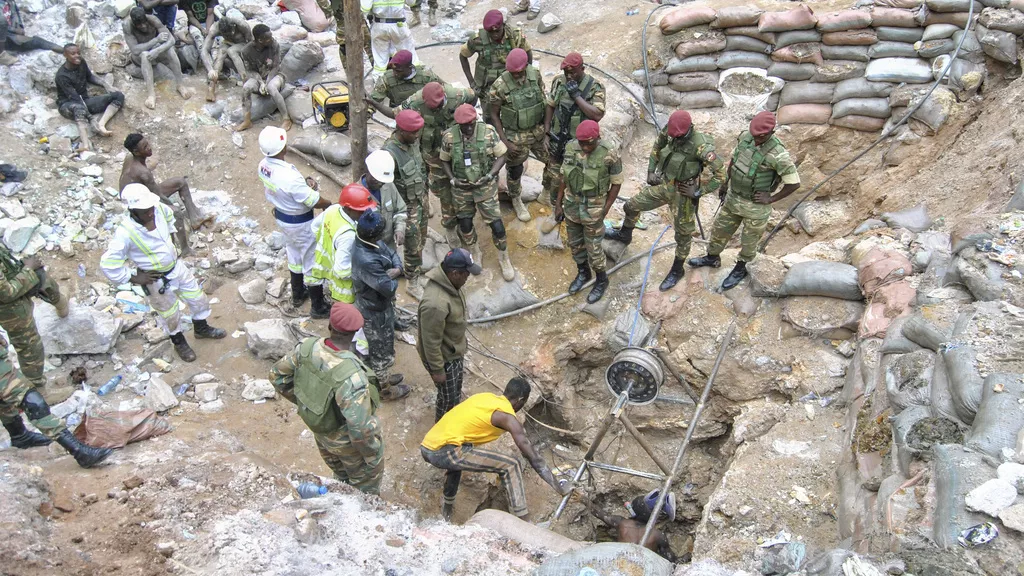8 miners dead, 1 missing after a mine collapse in Zambia
3 min read

A devastating mine collapse in Zambia has resulted in the deaths of eight miners, with one additional miner reported missing. The incident occurred in an open-pit copper mine located in Chingola, a city in the Copperbelt Province, on Wednesday. According to provincial police commissioner Peacewell Mweemba, while two miners managed to survive the collapse, the fate of the missing individual remains uncertain.
Tragically, state media reports indicate that six of the deceased miners belonged to the same family, underscoring the profound loss experienced by the local community. The victims were not official employees of the mining company; instead, they were part of a group engaged in informal mining activities—often referred to as “illegal” mining—searching for copper without authorization. This type of informal mining has become a widespread practice in Zambia, reflecting the desperate economic conditions faced by many.
The Chingola incident is part of a disturbing trend in Zambia, where informal miners frequently face life-threatening risks. Just this month, another collapse in Mumbwa claimed the lives of ten informal miners, highlighting the dangers associated with unregulated mining practices. Additionally, in August, nine miners perished at a quarry near Lusaka when a large mound of earth fell upon them, further illustrating the perilous nature of informal mining operations.
Last December, the situation was similarly tragic when heavy rains triggered landslides in another open-pit mine in Chingola, resulting in the deaths of more than 30 informal miners. These repeated accidents raise serious concerns about safety standards and the need for more effective regulations in Zambia’s mining sector.
Zambian President Hakainde Hichilema has publicly addressed the alarming frequency of mining accidents, labeling the number of fatalities as “unacceptable.” His statement underscores the urgent need for systemic changes to improve safety conditions in the mining industry, especially for those involved in informal mining activities.
Informal mining is often driven by economic necessity, as many individuals and families rely on the income generated from extracting minerals. However, the lack of regulation and oversight in these operations poses significant risks, both in terms of safety and environmental impact. As informal miners often work without proper training or equipment, they are particularly vulnerable to accidents, leading to tragic outcomes like the recent collapse in Chingola.
The government faces a complex challenge: balancing the economic benefits of mining with the imperative to protect the lives of those engaged in this work. Efforts to regulate informal mining, improve safety standards, and provide alternative livelihoods could help mitigate the risks associated with such activities.
In light of these repeated tragedies, there is a growing call for enhanced government intervention to protect informal miners. This could include increasing awareness about safe mining practices, enforcing regulations, and providing support for miners to transition into formal employment within the mining industry.
As the community mourns the loss of eight miners and prays for the safe return of the missing individual, the need for action has never been more critical. The Zambian government, alongside international organizations and stakeholders, must prioritize the safety of miners and work toward creating a safer environment for all involved in the mining sector.
The heartbreaking stories emerging from these accidents serve as a poignant reminder of the human cost associated with informal mining practices. It is essential for all parties involved to work collaboratively to ensure that miners are protected and that such tragedies are prevented in the future.
Ultimately, the tragic collapse in Chingola reflects broader issues within Zambia’s mining industry that require urgent attention. Addressing these challenges will not only save lives but also contribute to the long-term sustainability of the mining sector and the communities it serves.